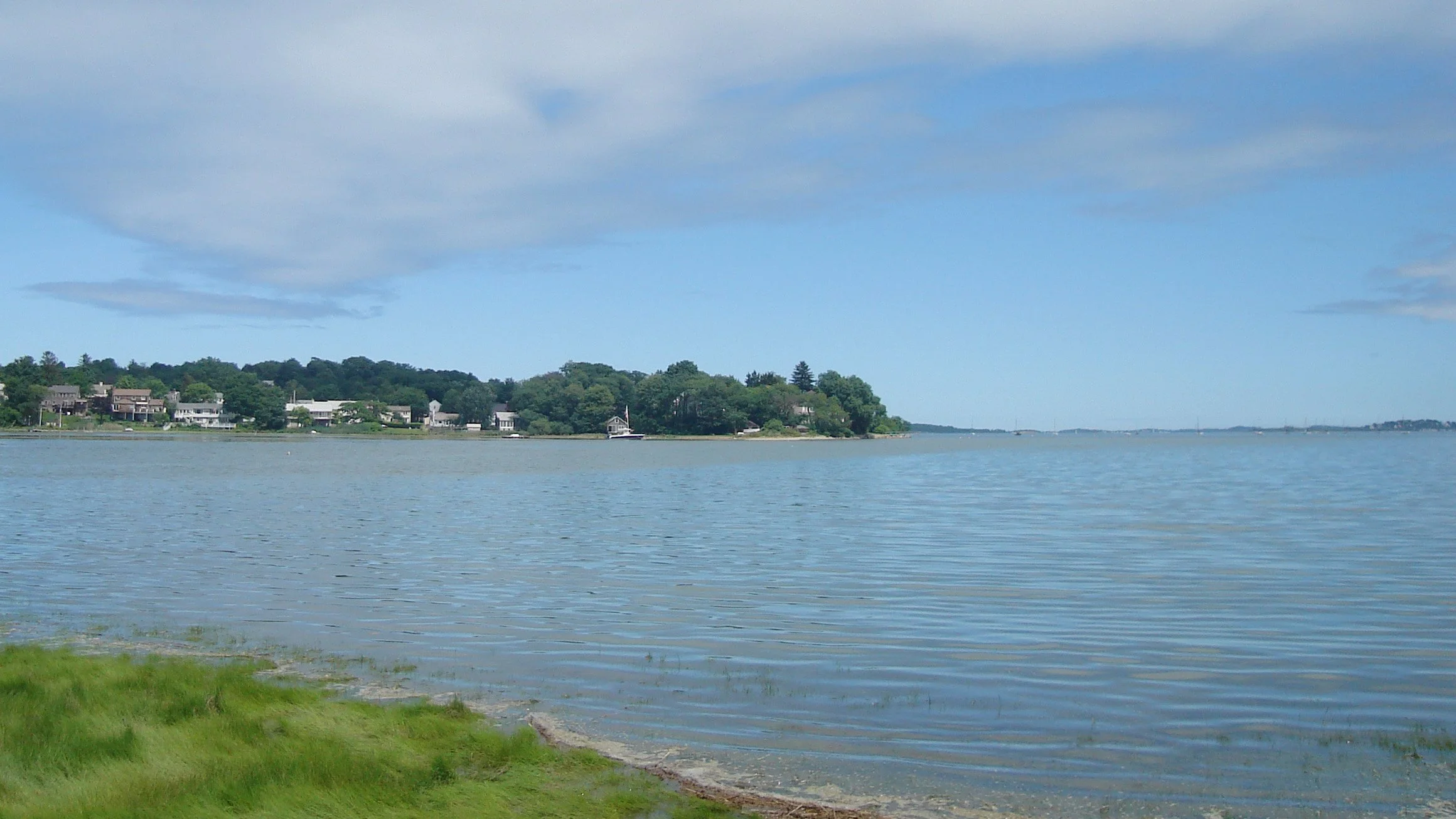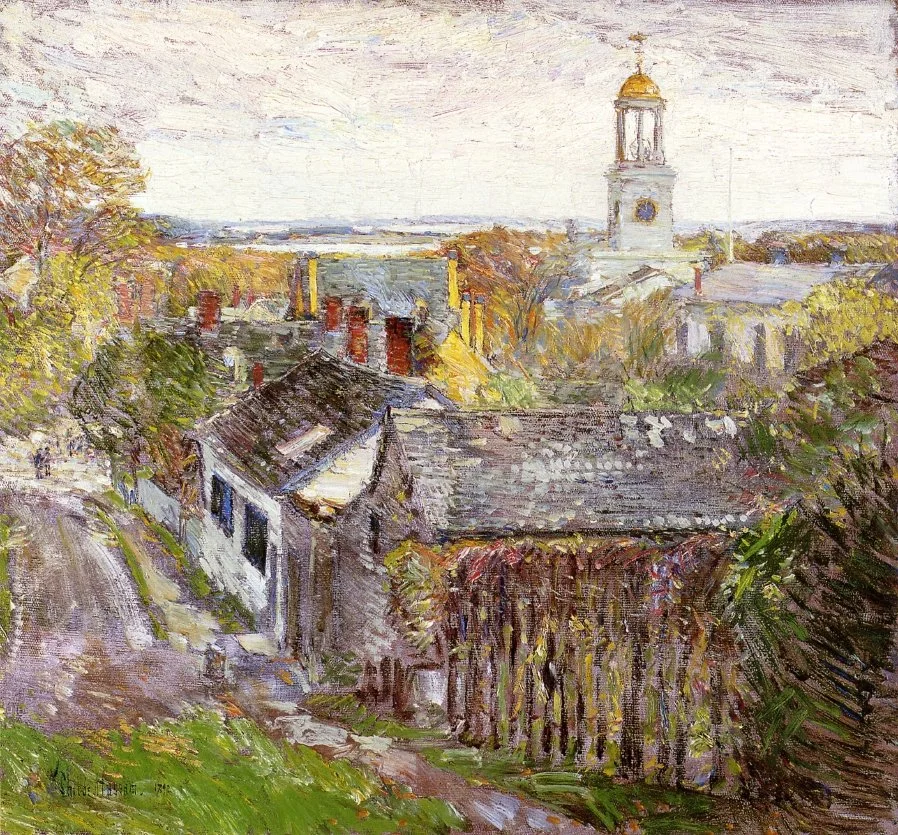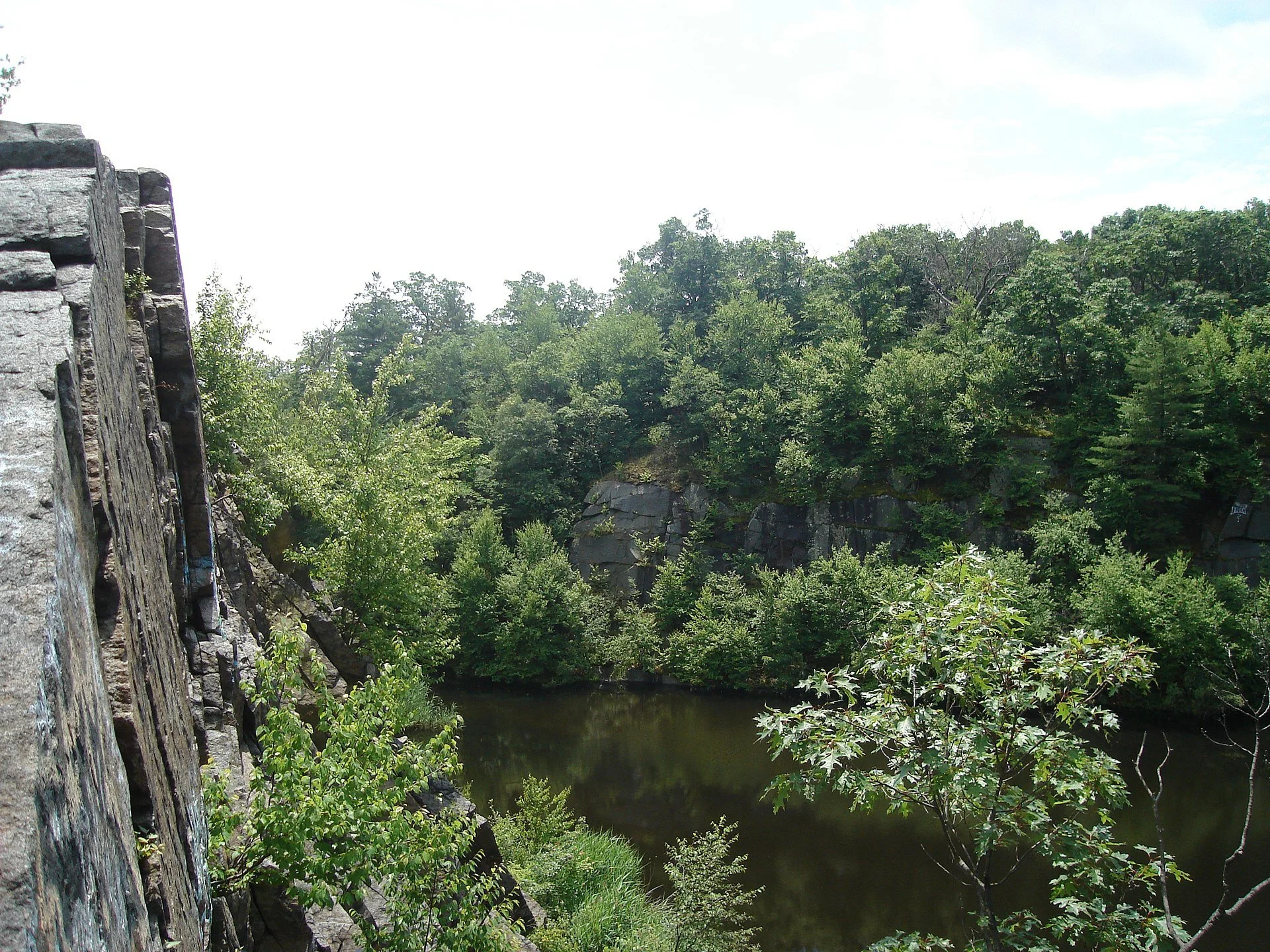Enjoying Quincy’s 19th Century ‘multiplicity of nature’
Still pretty: View looking east on Quincy Bay
— Photo by Sswonk
Quincy, Massachusetts (oil on canvas), by Childe Hassam, 1892
“Winter and summer, then, were two hostile lives, and bred two separate natures. Winter was always the effort to live; summer was tropical license. Whether the children rolled in the grass, or waded in the brook, or swam in the salt ocean, or sailed in the bay, or fished for smelts in the creeks, or netted minnows in the salt-marshes, or took to the pine-woods and the granite quarries, or chased musk-rats and hunted snapping turtles in the swamps, or mushrooms or nuts on the autumn hills, summer and country were always sensual living, while winter was always compulsory learning. Summer was the multiplicity of nature; winter was school.”
Henry Adams on growing up in and around Boston, in The Education of Henry Adams. Adams ( 1838-1918) was an American historian and a member of the Adams political family, which included his paternal grandfather, President John Quincy Adams, and great-grandfather, President (and a U.S. founding father) John Adams.
Adams’s book, published posthumously, won the 1919 Pulitzer Prize for nonfiction and The Modern Library placed it first in a list of the top 100 English-language nonfiction books of the 20th Century.
As a boy he spent his summers in Quincy, just outside of Boston but large parts of which were still quite bucolic then.
Quincy Quarries Reservation, in West Quincy.
— Photo by Sswonk



